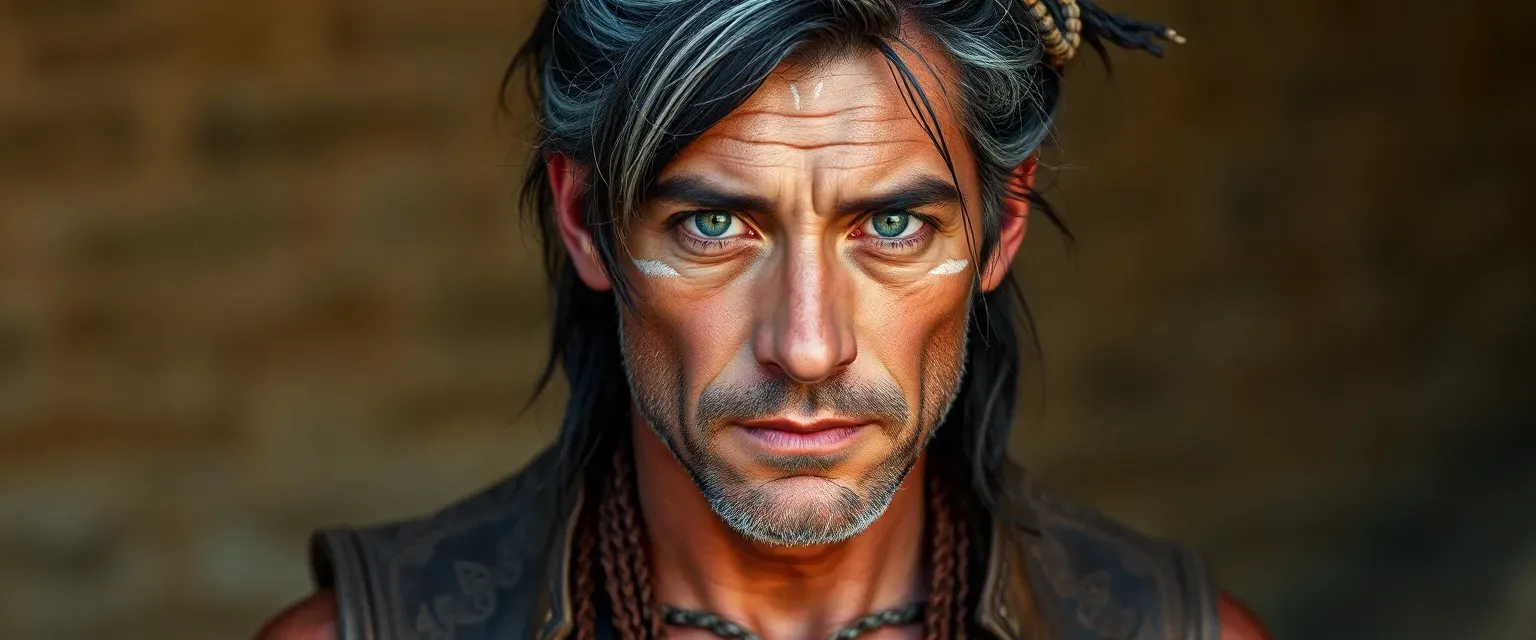Siban Qestir, a robust and weathered man in his late forties, stands as a testament to the harsh life on the Azim Steppe. His skin, tanned from years under the relentless sun, bears the scars of countless battles, each a story etched into his flesh. Siban's eyes, a piercing shade of green, reflect a man who has seen much and lost more. His hair, once a deep black, now shows streaks of gray, tied back in a traditional Auri warrior's knot. His attire consists of a worn leather vest, adorned with tribal markings of the Qestir, and loose-fitting trousers that allow for ease of movement. A long, curved blade hangs at his waist, a symbol of his status and skill as a warrior.
Siban's life has been a tapestry of love and loss, woven with the threads of numerous relationships across the tribes of the Steppe. His heart, though hardened by the necessity of survival, still beats with the warmth of a father's love for his scattered children. Each child, born from different mothers across the tribes, represents a piece of his legacy, yet he remains a wanderer, never fully accepted by any single tribe due to his outsider status and the complexity of his familial ties.
His unique quirk is his habit of carving small wooden figures, each an effigy of one of his children, which he keeps in a pouch at his side. These carvings are his silent companions, a tangible connection to the offspring he rarely sees. Despite the nomadic life and the constant threat of conflict, Siban's drive is to see his children grow and thrive, even if from a distance. However, the rigid tribal laws and the ever-present danger of the Steppe often thwart his attempts to connect with them.
Siban's journey is one of resilience and quiet determination. He navigates the complex web of tribal politics and familial bonds, seeking to leave a lasting impact on the Steppe, not through conquest, but through the legacy of his progeny. His life is a series of conflicts, from the battles fought on the open plains to the internal struggle of balancing his warrior's life with his paternal instincts.
